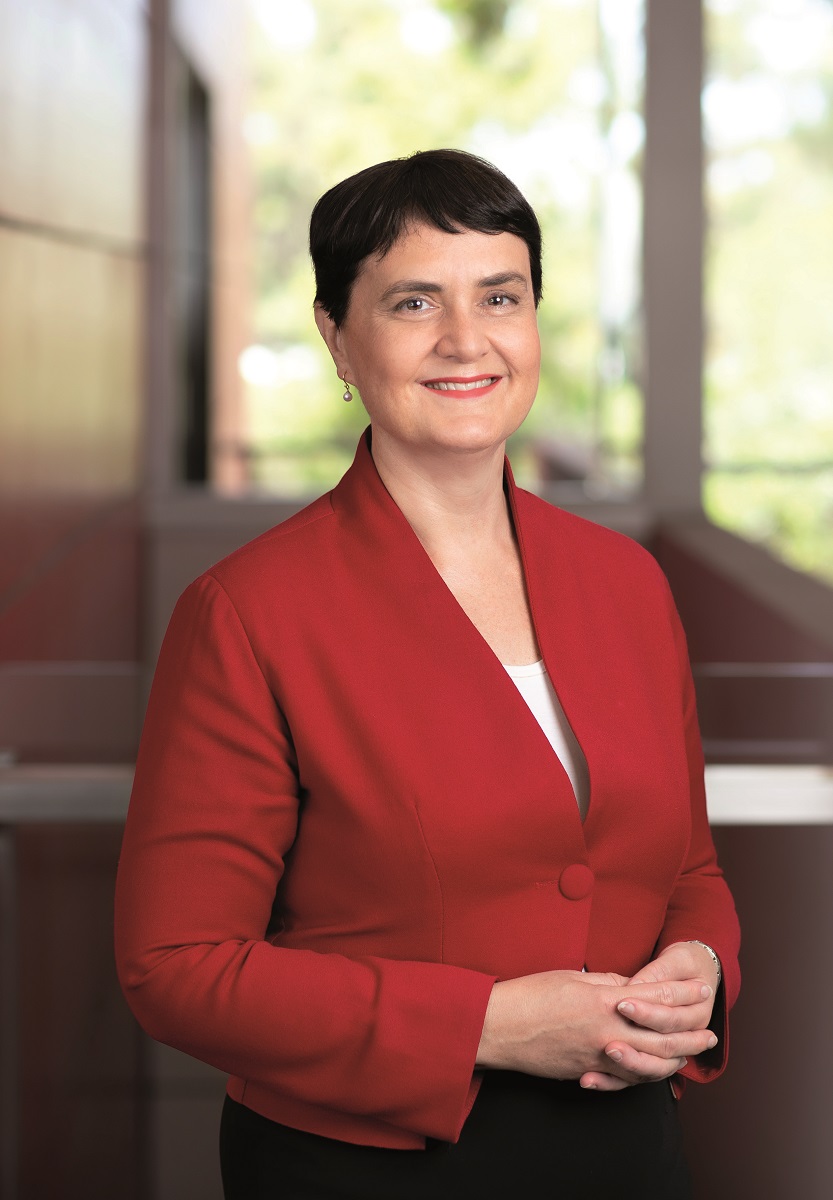Carolyn Evans
Vice-Chancellor and President, Griffith University

Professor Carolyn Evans, Vice-Chancellor and President at Griffith University
A Rhodes Scholarship allowed me the opportunity to come to Oxford, which was a life-changing experience. It pushed me intellectually and I remain proud of the influence of my thesis (which was published by OUP) as religious matters became more central to public debate. It was also an opportunity to make friends, travel, hear from extraordinary visiting speakers, sing in a choir, learn to punt and countless other experiences. As a university leader, I often reflect on this and remind colleagues that university is not just about formal classroom learning but also about a holistic opportunity to grow as a person.
While I had thought that I was likely to end up as a barrister, I was appointed for two years as a Stipendiary Lecturer in Law at Exeter College which gave me the opportunity to experience teaching. I was soon hooked and found teaching to be one of the most rewarding experiences of my professional life (it is a sad element of my current roles that regular teaching is no longer possible). My daughter was born shortly before we left Oxford and the flexibility of an academic career as compared to legal practice was also appealing. After leaving Oxford, I returned to a position at Melbourne Law School, where I eventually spent six years as Dean. My time at MLS was wonderfully stimulating with great colleagues and students. I was given every opportunity to develop as an academic but also to take on increasing levels of leadership responsibility. It was a great privilege to serve as the first female Dean of the Law School in its 150 year history. I had a wonderful opportunity to hire some very talented colleagues and it has given me great pleasure to see some of those I hired as junior scholars flourish in their careers in the time since. I was also very proud that we were able to start a clinical program at Melbourne under my leadership which allowed our students give back to the community while developing their professional skills.
In 2019, I moved to Griffith University as its first female Vice-Chancellor. Griffith is a wonderful university in South-East Queensland. I was attracted to it because of its values based approach to all aspects of university life, which aligns well with my own priorities. Since taking on the role, the challenges have been enormous, particularly in light of the coronavirus pandemic (although 2020 also brought bushfires, floods and cyclones to Queensland). Throughout this role and in my previous leadership roles there are some key principles that I have tried to adhere to and which stood me in good stead in dealing with these crises. The first is that honest, clear communication is key. There have been times when I have had to convey very difficult news to people, including around job losses, and it is critical not to resort to management speak, half truths or dodging responsibility. Even if they don’t like what they hear, people much prefer to be treated respectfully and truthfully. You should also be prepared to hear hard truths yourself and create opportunities to hear the unedited voices of those you lead. The second is to seek out the abilities of others (which you may see more clearly than they do) and to encourage and support them to achieve their best. A key question for any leader is ‘how can I create an environment in which talented people are hired and flourish?’ Finally, live your values and treat others with empathy and respect.
I am inspired by some of our students who have completed their studies despite extraordinary difficulties – from single mums trying to raise kids while obtaining a qualification, to students who have managed to get their degrees while having no secure housing, to students from a refugee background who are determined to succeed at university despite often disrupted early educational experiences. When things are tough, it is remembering how important our university is to them that keeps me going.
